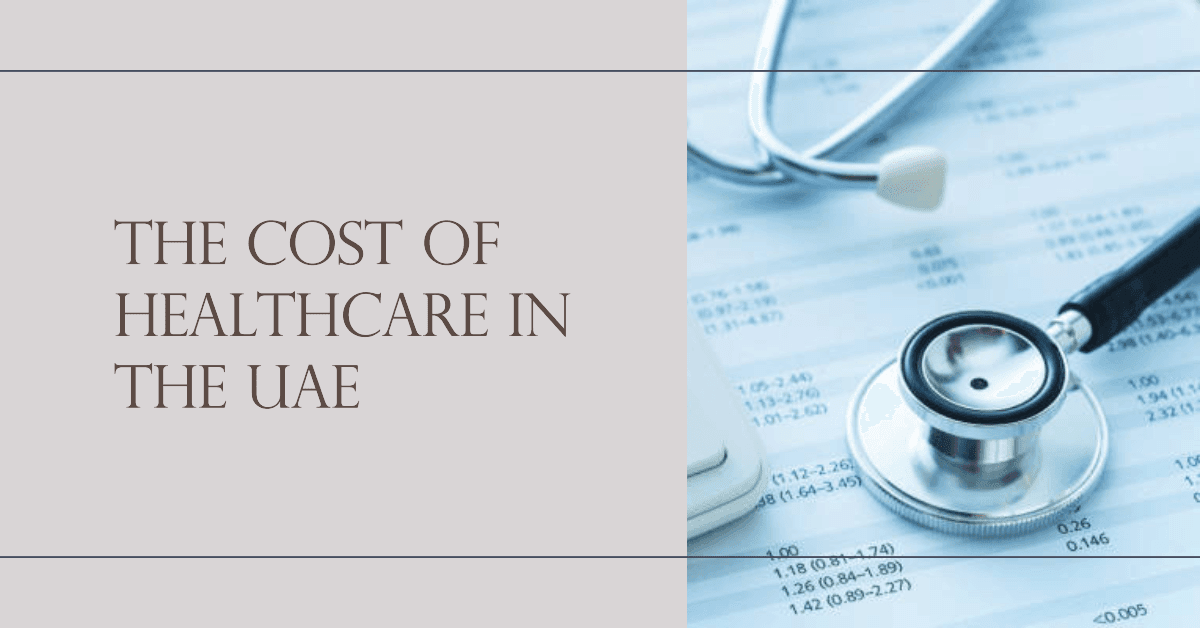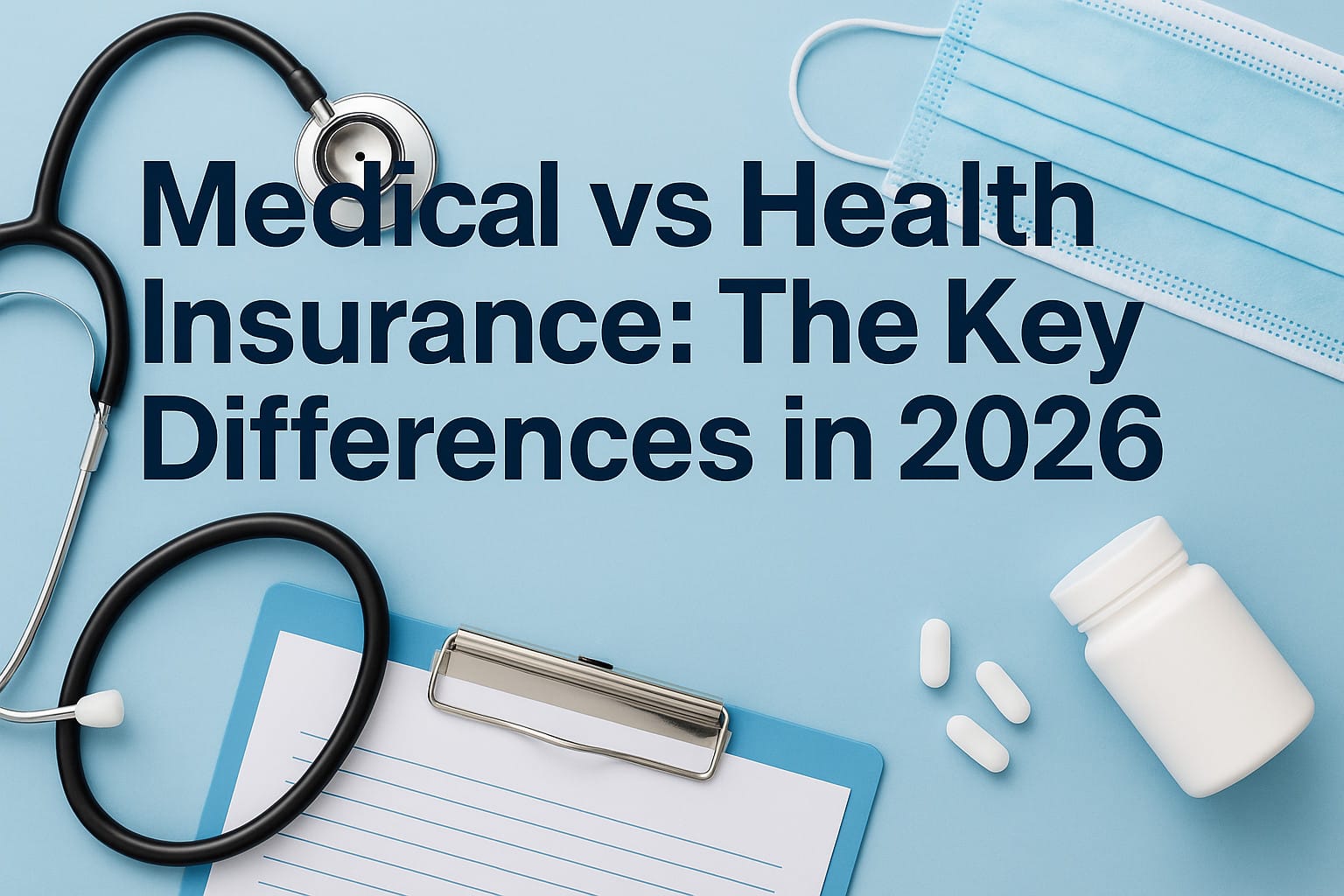Before you move to another place, learning about the UAE’s healthcare system and health insurance is important. If you’re going to the Gulf country, you’ll be glad to know that the quality of healthcare is really good, and you don’t need to worry about it. Understanding the health insurance UAE cost and medical insurance price in Dubai will help you budget effectively for your move.
The UAE has really good hospitals and doctors, and the healthcare system is one of the best in the world. The hospitals are modern and easy to get to for people who live there and new people. There are public and private hospitals, and many people from other countries like to go to private ones. In private hospitals, the doctors can speak English and are often from other countries.
Healthcare services in the UAE can be expensive, but they are worth it. If you are from the UAE, you can go to public hospitals and clinics, which will cost little or sometimes nothing. But if you are from another country, you have to pay a fee, and you can only go to public hospitals if you have a health card. If you need to find a doctor, you can look online.
The hospitals in the UAE have really good equipment, and the doctors are very skilled. They come from many different countries, so you can trust they will take good care of you. When you’re getting ready for your move, you can use this guide to learn more about the healthcare system in the UAE and find answers to any questions you have.
How Healthcare Works in the UAE?

The UAE has a high-quality healthcare system funded by the government, which means it uses public funds to care for people’s health. They also have fancy private hospitals growing fast and providing good care. People in the UAE are lucky because the federal government and the governments of each emirate oversee their healthcare.
In the UAE, each emirate has its own healthcare system, but you will receive good treatment no matter where you go. People from other countries, called expats, can go to public and private hospitals. But there’s a difference: Emirati people can go to public hospitals and clinics and not have to pay a lot of money, and sometimes they don’t have to pay anything. But expats have to pay a fee.
UAE Healthcare Facts

- Abu Dhabi and Dubai are two popular places in the UAE that many people from other countries visit. In these places, the healthcare is super good! Dubai, in particular, is famous for its high-quality medical procedures and modern hospitals. People from all over the world come to Dubai for treatment, and this is called “medical tourism.” People will need to obtain their visas for medical treatment, often requiring a visit visa, medical insurance, and UAE price considerations. In 2016, Dubai had around 326,649 medical tourists. It’s expected that by the end of 2020, the number will be even bigger, maybe more than 500,000!
- If you work in Abu Dhabi, your employer must provide you with health insurance. That means they will help pay for your medical expenses. You can also get health insurance for your family. Your family includes your husband or wife and up to three kids younger than 18. But if you have a fourth child, you must arrange their health insurance yourself.
- In Dubai, companies must provide health insurance to their workers. But they don’t have to give it to their families. The Dubai government thinks it’s a good idea for companies to cover families, but it’s not a rule. They want to ensure everyone has healthcare because it’s the law.
- The types of doctors people wish to see in Dubai are bone, skin, and eye doctors. They are super popular! Dubai is famous for making your face look pretty, fixing your teeth, and helping people have babies. Many people go to Dubai for these treatments because they are good at it.
- If you live in Dubai or Abu Dhabi, you must get health insurance, even if you don’t have a job. It’s a rule! If you don’t have insurance, you must pay a monthly fine. The fine is 500 AED (about 136 USD). You can only get a visa to live there with insurance, so people ensure they have it. Understanding how much health insurance will cost in Dubai helps residents budget for this mandatory requirement.
- If your company doesn’t give you health insurance or doesn’t give it to your family, you have to take care of it yourself. You become the sponsor for their coverage. It means you have to make sure they have insurance.
- In the northern emirates of Sharjah, Fujairah, Ajman, Ras Al-Khaimah, and Umm Al-Quwain, employers are not required to provide health insurance to employees.
What does the UAE Public Healthcare Cover?

Just like everything else, what public healthcare covers in the UAE differs in each place. But in general, it takes care of basic health Just like everything else, what public healthcare covers in the UAE differs in each place. But in general, it takes care of basic health needs such as:
- Maternity services
- Emergencies
- Public healthcare in the UAE covers basic services such as check-ups, treatments, and tests provided by doctors and specialists. It also includes services like lab tests, X-rays, and therapy. They even provide medicine that doctors prescribe to help you feel better.
- Preventive services (necessary vaccinations and immunisations for youngsters and newborns)
Below are the things that are excluded:Vision correction by surgery or laser, Hearing and vision aids, Dental and gum exams. In some circumstances, public healthcare can also apply to surgical operations, maternity follow-ups, and physiotherapy.
Below are the things that are excluded:
- Vision correction by surgery or laser
- Hearing and vision aids
- Dental and gum exams
In some circumstances, public healthcare can also apply to surgical operations, maternity follow-ups, and physiotherapy.
Essential Benefits Plan

You have options if your boss doesn’t give you healthcare or cover your family! You can get your private healthcare plan or the Essential Benefits Plan (EBP). The EBP gives you the same coverage as public healthcare. It’s only for people who earn less than 4,000 AED per month (about 1,090 USD). This is one of the most affordable options when considering the health insurance UAE price.
If you have helpers at home, you must also give them healthcare. Many expats go for the EBP. It costs around 550 to 650 AED annually (about 150 to 175 USD), making it a cost-effective option for those comparing medical insurance options in Dubai.
Healthcare Cities
The UAE proposed an idea to improve and simplify healthcare. They made special places called healthcare cities! These cities have many clinics with a variety of doctors. Right now, there are three healthcare cities in the UAE. They’re like big complexes where you can find all the other doctors you need in one place. It makes it convenient for people to get the care they need.
- Dubai Healthcare City
- Sharjah Healthcare City
- Sheikh Khalifa Medical City
Health Insurance UAE Cost: What to Expect
Understanding medical insurance Dubai cost and coverage options is essential for budgeting. How much your employer covers for your health insurance depends on how much money you make and your job. It’s different for everyone. The more they cover, the less you must pay for medical stuff. So, it all depends on your insurance plan and how much your employer helps with the cost. When evaluating the best health insurance Dubai providers, consider both employer contributions and out-of-pocket expenses.
The UAE Healthcare System Advantages and Disadvantages
Advantages
- Public health facilities are less expensive, but wait times are long.
- Private hospitals generally have few wait times.
- English is widely spoken within private healthcare facilities.
- World-Class medical care.
- Innovative technology
Disadvantages
- Those who speak Arabic or English may need help to see a medical professional they can communicate with.
- Pricey
Why is Medical Insurance Dubai Cost Higher? Understanding Pricing Factors
Healthcare in the UAE is pricey for a few reasons. First, there are many more people from other countries, called expats, than Emirati people. That means there are more private hospitals and clinics than public ones. In 2018, 33 government and 71 private hospitals were in the UAE. This private healthcare dominance significantly impacts health insurance price in Dubai and overall medical insurance cost Dubai.
Another reason healthcare costs a lot is that people usually go straight to specialists instead of starting with a regular doctor. This means they need more tests and consultations, increasing the bills. Understanding how much medical insurance cost in Dubai helps you prepare for these specialist consultation expenses.
Lastly, healthcare in the UAE is expensive because you’re paying for good treatment. The doctors there are super intelligent and have all the latest equipment. They even do research. All this great stuff comes at a high price, but you can trust that you’ll get top-notch care. When comparing Dubai medical insurance cost options, the quality of care justifies the investment.This great stuff comes at a high price, but you can trust that you’ll get top-notch care.
Do You Require Health Insurance in the UAE?

If you want to live in the UAE, you must show your health insurance. You need proof of it to get a visa to stay there. But here’s the If you want to live in the UAE, you must show your health insurance. You need proof of it to get a visa to stay there. But here’s the thing: Emirati people don’t have to pay for insurance, but expats have to pay for private and public health insurance in the UAE.
- Dubai: When you work for a company in the UAE, it must provide you with health insurance. But they don’t have to give it to your family. Knowing the health insurance Dubai price for dependents helps you plan for additional coverage costs.
- Abu Dhabi: Employers must provide health insurance coverage for their employees and for four dependents (one spouse and up to three children under 18). Expats with four or more children must arrange their own coverage.
- Sharjah and Northern Emirates: Employers are not mandated to provide medical insurance for their employees.
The UAE Health Card: Affordable Alternative to Medical Insurance Dubai

In Dubai, if your employer or your spouse’s employer doesn’t give you health insurance, you must get a health card. The health card provides basic healthcare, similar to what Emirati people receive through the public healthcare system.
You need a health card to go to public hospitals and clinics. Even with private insurance, having a health card is a good idea. Private insurance may cover only some expenses, and visiting a government hospital or clinic can be cheaper. So having a health card can be helpful.
Health Card Fees
There are different fees for health services in the UAE based on age. If you are between 0 and 9 years old, it costs 100 AED (about 27 USD). If you are between 10 and 17 years old, it costs 200 AED (about 54 USD). And if you are 18 or older, it costs 300 AED (about 82 USD). These fees help cover the cost of the healthcare services you receive.
Requirements to Obtain a UAE Health Card
- Passport copy
- Covering letter from a sponsor
- Visa application copy
- Two passport-size photographs
- Completed application form
Medical Insurance Dubai Price: Individual and Family Plans
Many UAE companies provide their employees with health insurance as part of their salaries. But not all companies do that. If you want good insurance covering many things, you might have to pay around 10,000 AED (about 2,720 USD) annually. This represents typical medical insurance price in Dubai for comprehensive individual coverage.
Health Insurance UAE Price for Singles
The cost of insurance offered by most insurance companies can vary. For example, if you’re 30 and want good coverage, it might be around 5,500 AED (about 1,500 USD) per year. But if you have a family of four and want good coverage, it could be approximately 33,500 AED (about 9,120 USD) per year.
UAE Medical Insurance Prices for Family Plans
Understanding the prices of UAE medical insurance for family plans is crucial for household budgeting. A basic coverage plan for a family of four might cost around 17,000 AED (about 4,630 USD), making it more affordable than medical insurance in Dubai.







